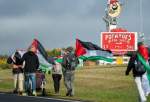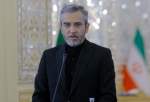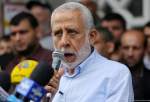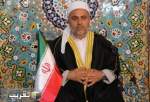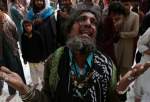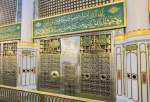In a statement released on Monday, the office of Hamas leader in Gaza, Yahya Sinwar, announced the ceasefire, under which the Tel Aviv regime would stop airstrikes and the resistance group would halt launching of incendiary balloons.
After talks with Qatari envoy Mohammed al-Emadi, “an understanding was reached to rein in the latest escalation and end [Israeli] aggression against our people,” it said.
The understanding, it added, would ease the way for implementation of projects “that will serve the people of Gaza, and alleviate the suffering amid the coronavirus wave.”
Shortly after Hamas’ statement, Israel’s liaison agency to the Palestinian territories said it would reopen the Gaza crossing, including to fuel deliveries, as well as the fishing zone to the full 15-nautical-mile limit.
The decisions were “subject to the continuation of the calm and the security stability,” said the so-called Coordinator of Government Activities in the Territory (COGAT), adding that if Hamas failed to deliver, Israel would “act accordingly.”
The Israeli army has bombed Gaza almost daily since August 6 in what it says is a response to the airborne incendiary devices and rockets launched from the blockaded coastal sliver into the occupied lands.
The fire balloons are widely seen as an attempt by Hamas to improve the terms of an informal truce, under which Israel committed to easing its 13-year-old crippling siege of the Gaza Strip.
So far, however, Israel has tightened the blockade, banned Palestinian fishermen from going to sea, and closed a key crossing with the territory, prompting the closure of Gaza’s sole power plant for want of fuel.
A Hamas source said there had been “a total halt” to balloon and other attacks against Israel in agreement with other Gaza-based resistance factions.
“Fuel supplies will return and the power station will be restarted from Tuesday,” he noted.
The Qatari envoy brokered the truce after meetings with Gaza and Israeli officials over the past week.
He praised the Hamas leadership for possessing “a high level of responsibility… taking into account the difficult circumstances and conditions that the residents of the Strip live in, especially in light of the spread of coronavirus in the Gaza Strip.”
In exchange for the ceasefire, Emadi promised “the implementation of a number of projects that serve the people of the Gaza Strip and contribute to alleviating the effect of the years-long blockade.”
He is expected to soon begin distributing the $30 million he brought into Gaza, which will go to purchasing fuel, paying civil servants and helping the poor.
UN Special Coordinator for the Middle East Peace Process Nickolay Mladenov emphasized that the truce allowed the world body to begin assisting Gaza deal with the coronavirus outbreak.
“I welcome the agreement to de-escalate tensions in and around Gaza. Ending the launching of incendiary devices and projectiles, restoring electricity will allow UN to focus on dealing with the COVID-19 crisis,” he said.
Israel has launched three major wars against the enclave since 2008, killing thousands of Gazans each time and shattering the impoverished territory’s already poor infrastructure.
The blockade has caused a decline in the standard of living as well as unprecedented levels of unemployment and unrelenting poverty in the Gaza Strip.


